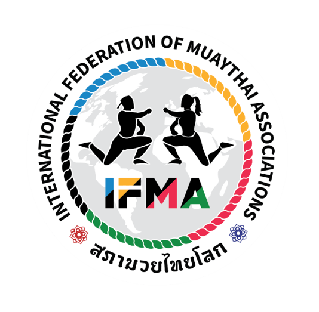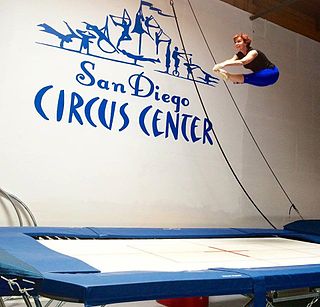Related Research Articles

Cheerleading is an activity in which the participants cheer for their team as a form of encouragement. It can range from chanting slogans to intense physical activity. It can be performed to motivate sports teams, to entertain the audience, or for competition. Cheerleading routines typically range anywhere from one to three minutes, and contain components of tumbling, dance, jumps, cheers, and stunting.

The Paralympic Games or Paralympics, also known as the Games of the Paralympiad, is a periodic series of international multisport events involving athletes with a range of disabilities. There are Winter and Summer Paralympic Games, which since the 1988 Summer Olympics in Seoul, South Korea, are held almost immediately following the respective Olympic Games. All Paralympic Games are governed by the International Paralympic Committee (IPC).

Yelena Gadzhievna Isinbayeva is a Russian former pole vaulter. She is a two-time Olympic gold medalist, a three-time World Champion, the world record holder in the event, and is widely considered the greatest female pole-vaulter of all time. Isinbayeva was banned from the 2016 Rio Olympics after revelations of an extensive state-sponsored doping program in Russia, thus dashing her hopes of a grand retirement after winning the Olympic gold medal. She retired from athletics in August 2016 after being elected to serve an 8-year term on the IOC's Athletes' Commission.

Figure skating was first contested in the Olympic Games at the 1908 Summer Olympics. Since 1924, the sport has been a part of the Winter Olympic Games.

Paralympic alpine skiing is an adaptation of alpine skiing for athletes with a disability. The sport evolved from the efforts of disabled veterans in Germany and Austria during and after the Second World War. The sport is governed by the International Paralympic Committee Sports Committee. The primary equipment used includes outrigger skis, sit-skis, and mono-skis. Para-alpine skiing disciplines include the Downhill, Super-G, Giant slalom, Slalom, Super Combined and Snowboard.

Sport in Israel plays an important role in Israeli culture and is supported by the Ministry of Culture and Sport. The most popular sports in Israel have traditionally been Association football (mainly) and basketball (secondly) – with the first being considered the national sport – in both of which Israeli professional teams have been competitive internationally. Israel is an international center for Jewish sport around the world and since 1932 the Maccabiah Games, an Olympic-style event for Jewish athletes, is held in the country. Despite Israel's location in the Asian continent, the Israeli sports associations in various sports belong to the European associations due to the refusal of many Arab Asian countries to compete with Israeli athletes.

Pole dance combines dance and acrobatics centered on a vertical pole. This performance art form takes place not only in gentleman's clubs as erotic dance, but also as a mainstream form of fitness, practiced in gyms and dedicated dance studios. Pole dancing enthusiasts are of all ages; although many who perform this dance and acrobatic form are adults, that does not stop younger children from learning and performing in competitions. Amateur and professional pole dancing competitions are held in countries around the world.

Phillip Mills is a former track and field athlete and businessman from New Zealand. He is the founder, executive director, and former chief executive of Les Mills International and a founder of Pure Advantage, a green business lobby group.
The International Pole Championship (IPC) is a competition organised every second year by the International Pole Dance Fitness Association (IPDFA). It is the brainchild of renowned performer and instructor Ania/Anna Przeplasko. It is the world's first international pole dance fitness championship where winners are credited solely for their dance skills, unique tricks, techniques, overall performance and showmanship. To enter into IPC Winners of National Championships are granted entry to the semi-final division of the 4 phase elimination process. Undiscovered talents can submit their video entry via the IPC website. Semi-finalists are chosen by panel of experienced International Judges, and announced online via social media platforms. Fans enter into an online voting system to choose their favourite semi-finalist who joins the world most proclaimed performers entered with the title of Pole Idol, together with a sponsorship to the Grand Finals.
Para-alpine skiing classification is the classification system for para-alpine skiing designed to ensure fair competition between alpine skiers with different types of disabilities. The classifications are grouped into three general disability types: standing, blind and sitting. Classification governance is handled by International Paralympic Committee Alpine Skiing. Prior to that, several sport governing bodies dealt with classification including the International Sports Organization for the Disabled (ISOD), International Stoke Mandeville Games Federation (ISMWSF), International Blind Sports Federation (IBSA) and Cerebral Palsy International Sports and Recreation Association (CP-ISRA). Some classification systems are governed by bodies other than International Paralympic Committee Alpine Skiing, such as the Special Olympics. The sport is open to all competitors with a visual or physical disability. It is not open to people with intellectual disabilities.
LW12 is a para-Alpine and para-Nordic sit skiing sport class defined by the International Paralympic Committee (IPC). An LW12 skier needs to meet a minimum of one of several conditions including a single below knee but above ankle amputation, monoplegia that exhibits similar to below knee amputation, legs of different length where there is at least a 7 centimetres difference, combined muscle strength in the lower extremities less than 71. For international competitions, classification is done through IPC Alpine Skiing or IPC Nordic Skiing. For sub-international competitions, classification is done by a national federation such as Alpine Canada. For para-Alpine, this class is subdivided into two subclasses.: LW12.1 and LW12.2. A new sit-skier competitor with only national classification will compete as LW12.2 in international competitions until they have been internationally classified.
LW4 is a para-Alpine and para-Nordic standing skiing sport class defined by the International Paralympic Committee (IPC) for skiers who may have a disability in one lower extremity, which may be a result of a leg amputation below the knee, knee arthrodesis or a hip arthrodesis. For international skiing competitions, classification is done through IPC Alpine Skiing or IPC Nordic Skiing. A national federation such as Alpine Canada handles classification for domestic competitions.
LW5/7 is a standing para-Alpine and para-Nordic skiing classification for skiers with upper extremity issues in both limbs that may include double amputation of both arms and hands or dysmelia of the upper limbs. The class has three subclasses defined by the location of the disability on the upper extremities. International classification is done by IPC Alpine Skiing and IPC Nordic Skiing. On the national level, classification is handled by national sports federation such as Cross-Country Canada.

LW6/8 is a para-Alpine and para-Nordic standing skiing sport class, a classification defined by the International Paralympic Committee (IPC) for people with an upper extremity issue who have paralysis, motor paresis affecting one arm, a single upper arm amputation or CP8 classified cerebral palsy. LW6/8 skiers use two skis and one pole in both para-Alpine and para-Nordic skiing.

The International Federation of Muaythai Associations, or IFMA, called the International Federation of Muaythai Amateur until 27 July 2019, is the sole recognised sport governing body of amateur and professional Muay Thai and Muay boran consisting of 140 member countries worldwide with 5 continental federations after unification of International Federation of Muaythai Amateur and World Muaythai Council. IFMA is officially recognised by the International Olympic Committee (IOC), the Global Association of International Sports Federations (GAISF), the Association of IOC Recognised International Sports Federations (ARISF), the Olympic Council of Asia (OCA), World Anti-Doping Agency (WADA) International World Games Association (IWGA), and Trim and Fitness International Sport for All Association (TAFISA). Muaythai has been included in many official sport programs such as the World Games, World Combat Games, Arafura Games, TAFISA Games, SEA Games, Asian Indoor and Martial Arts Games, Asian Beach Games, Demonstration Sport in the Asian Games.

Elena Gibson is a professional dancer pole dance choreographer, instructor and performer who has played a leading role in the development of pole dancing as an art form and sport across the world.

Competitive cross-country skiing encompasses a variety of race formats and course lengths. Rules of cross-country skiing are sanctioned by the International Ski Federation and by various national organizations. International competitions include the FIS Nordic World Ski Championships, the FIS Cross-Country World Cup, and at the Winter Olympic Games. Such races occur over homologated, groomed courses designed to support classic (in-track) and freestyle events, where the skiers may employ skate skiing. It also encompasses cross-country ski marathon events, sanctioned by the Worldloppet Ski Federation, and cross-country ski orienteering events, sanctioned by the International Orienteering Federation. Related forms of competition are biathlon, where competitors race on cross-country skis and stop to shoot at targets with rifles, and paralympic cross-country skiing that allows athletes with disabilities to compete at cross-country skiing with adaptive equipment.

Dian Nissen is a multiple world-title trampoline athlete and competitor, multiple U.S. Women’s Trampoline champion, AAU All-American, health and fitness expert, and entrepreneur. She is the daughter of George Nissen, the inventor of the modern-day trampoline.
Pole sports, or poling, merges dance and acrobatics using a vertical metal pole. Athletes climb up, spin from, hang off, flip onto, jump off, and invert on poles. Poling requires agility, strength, balance, endurance, and flexibility. A 2017 study of 52 female pole dancers indicated that pole-dance fitness improves strength and posture. Poling can serve as a form of cardiorespiratory exercise, and improve muscle strength and flexibility. Pole-sports athletes include men and women of a variety of ages and physical abilities, including para-athletes, who perform alone or with others.
The International Pole Sports Federation (IPSF) is a not-for-profit global organization that has been recognized as an Observer Member by the Global Association of International Sports Federations (GAISF) as the international governing body for pole sports. The IPSF is the umbrella organization for national pole federations and hosts the annual World Pole Championships.
References
- ↑ "Pole dancing for men?". Archived from the original on January 30, 2010. Retrieved August 8, 2010.
- ↑ ENTER. "Welcome - IPDFA - Pole Dance Association". IPDFA. Retrieved 2012-03-20.
- ↑ polechampionship's website-
- ↑ Moss, Hilary (2009-12-04). "World Pole Dancing Competition Includes Men's Category (VIDEO)". Huffingtonpost.com. Archived from the original on December 7, 2009. Retrieved 2012-03-20.
- ↑ "Pole dancing climbs new heights | Video". Reuters.com. 2009-02-09. Retrieved 2012-03-20.
- ↑ "Diane Passage: Male Pole Dancers Are on the Rise". Huffingtonpost.com. 2009-12-03. Retrieved 2012-03-20.
- ↑ Ania Przeplasko Dance Studio website
- ↑ AP (2010-02-22). "Pole dancing seeks Olympic inclusion - Olympics - Sport". The Independent. London. Retrieved 2012-03-20.
- ↑ "Pole dancing could be headed to the Olympics". Daily News. New York. 2010-02-23.
- ↑ "Diane Passage: Pole Dancing Will Need a Makeover For the Olympics". Huffingtonpost.com. 2009-10-24. Retrieved 2012-03-20.